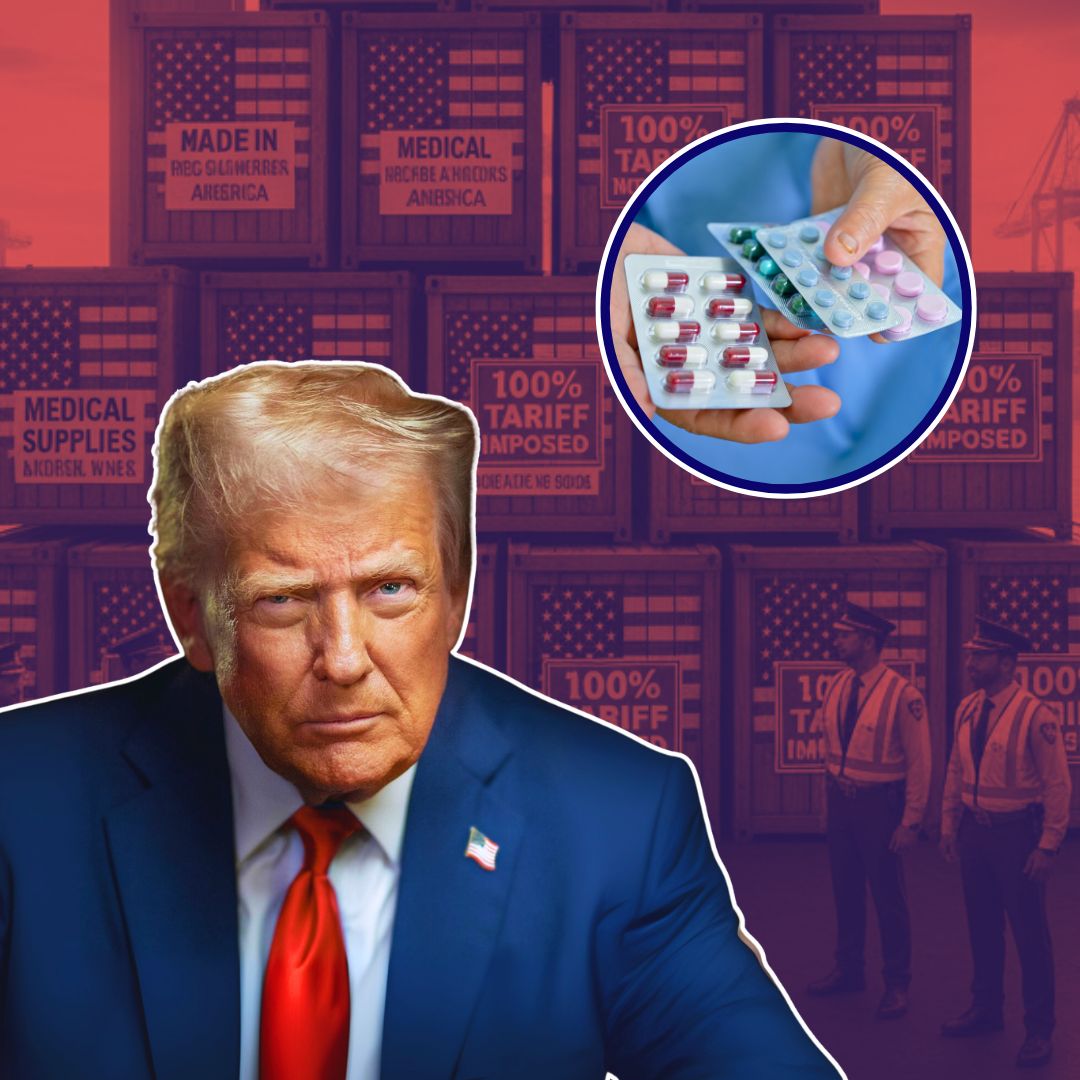President Donald Trump recently unveiled a broad new set of tariffs set to take effect on October 1, 2025, targeting critical sectors including pharmaceuticals, heavy trucks, and home furnishings. These tariffs include a sweeping 100% duty on imported branded pharmaceutical drugs, a 25% tariff on heavy-duty trucks, a 50% tariff on kitchen cabinets and bathroom vanities, and a 30% tariff on upholstered furniture.
The administration claims these measures aim to bolster domestic manufacturing, protect American jobs, and address perceived national security threats. However, the announcement has reignited debates about the economic and social impacts of such protectionist policies, drawing concerns from healthcare advocates, industry experts, and international trading partners.
Tariffs to Boost Domestic Production and Security
In announcing the tariffs, President Trump framed them as a necessary response to what he called an “unfair flood” of imports undermining American manufacturers. Speaking on Truth Social, he explained the 100% tariff on branded pharmaceuticals would be waived only for companies currently building or expanding manufacturing plants within the United States.
This targeted approach reflects the administration’s broader goal of reshoring critical drug production to reduce dependency on foreign suppliers, framed as essential for national security. Similarly, the 25% tariff on heavy-duty trucks is aimed at protecting well-known American truckmakers such as Peterbilt, Kenworth, Freightliner, and Mack Trucks from foreign competition, particularly imports from Mexico and other parts of the world.
Trump highlighted these tariffs as part of a national strategy to ensure America’s industrial strength and security.
Regarding home furnishings, Trump cited the detrimental impact of import surges on local cabinetmakers and furniture manufacturers, justifying the 50% tariff on kitchen cabinets and bathroom vanities and the 30% tariff on upholstered furniture.
The president described the volume of imports as “excessive,” asserting that the tariffs would help restore domestic industry competitiveness and manufacturing jobs.
However, he did not provide a detailed legal basis for these measures beyond invoking national security under Section 232 of the Trade Expansion Act of 1962 and related executive authorities.
Economic and Global Repercussions
The tariffs come amid an already complex and tense global trade environment. Previous tariffs implemented under Trump’s presidency, such as 50% levies on steel, aluminum, and copper, plus a 25% tariff on imported cars, have significantly increased production costs for many industries.
The new tariffs add another layer of uncertainty, with potential inflationary effects on prices for trucks, household goods, and notably healthcare products. Healthcare organisations have expressed particular concern that a 100% tariff on branded drugs could sharply increase medication prices, making essential treatments less affordable for many Americans.
Internationally, trading partners have responded cautiously, warning of possible retaliatory tariffs that could further strain global supply chains and trade relationships. The European Union, China, and other countries have already been engaged in tit-for-tat tariff exchanges with the US, and these latest measures risk escalating protectionist tensions.
The administration’s framing of these tariffs under national security grounds and invoking broad executive powers has drawn scrutiny and legal challenges, adding to the uncertainty businesses face.
Historical and Legal Context
This latest tariff round fits into a pattern of expansive tariff imposition during Trump’s second term, which has raised the overall US applied tariff rate to historic highs exceeding 17%. Earlier moves included universal “reciprocal tariffs” on imports from countries not subject to sanctions, as well as country-specific secondary tariffs targeting nations such as India and Brazil.
The administration has also sought to renegotiate trade agreements with close allies and partners, often using tariffs as leverage.
Section 232 investigations and the International Emergency Economic Powers Act (IEEPA) have been pivotal legal tools invoked to justify tariffs on purported national security grounds.
However, courts have recently questioned the limits of presidential authority in imposing such tariffs, with some rulings allowing continuation of tariffs only while legal appeals proceed. This legal complexity casts a shadow on the durability and scope of the new tariffs.
The Logical Indian’s Perspective
While the pursuit of domestic industrial growth and economic security is an understandable priority, tariffs on essential goods like pharmaceuticals carry significant ethical and social implications. Access to affordable healthcare should not be compromised in efforts to protect industry competitiveness.
The Logical Indian believes economic policies must be crafted with empathy, balancing national interests with inclusivity and public welfare. Engagement through dialogue and multilateral cooperation can achieve sustainable development without the collateral harm of protectionist barriers.










